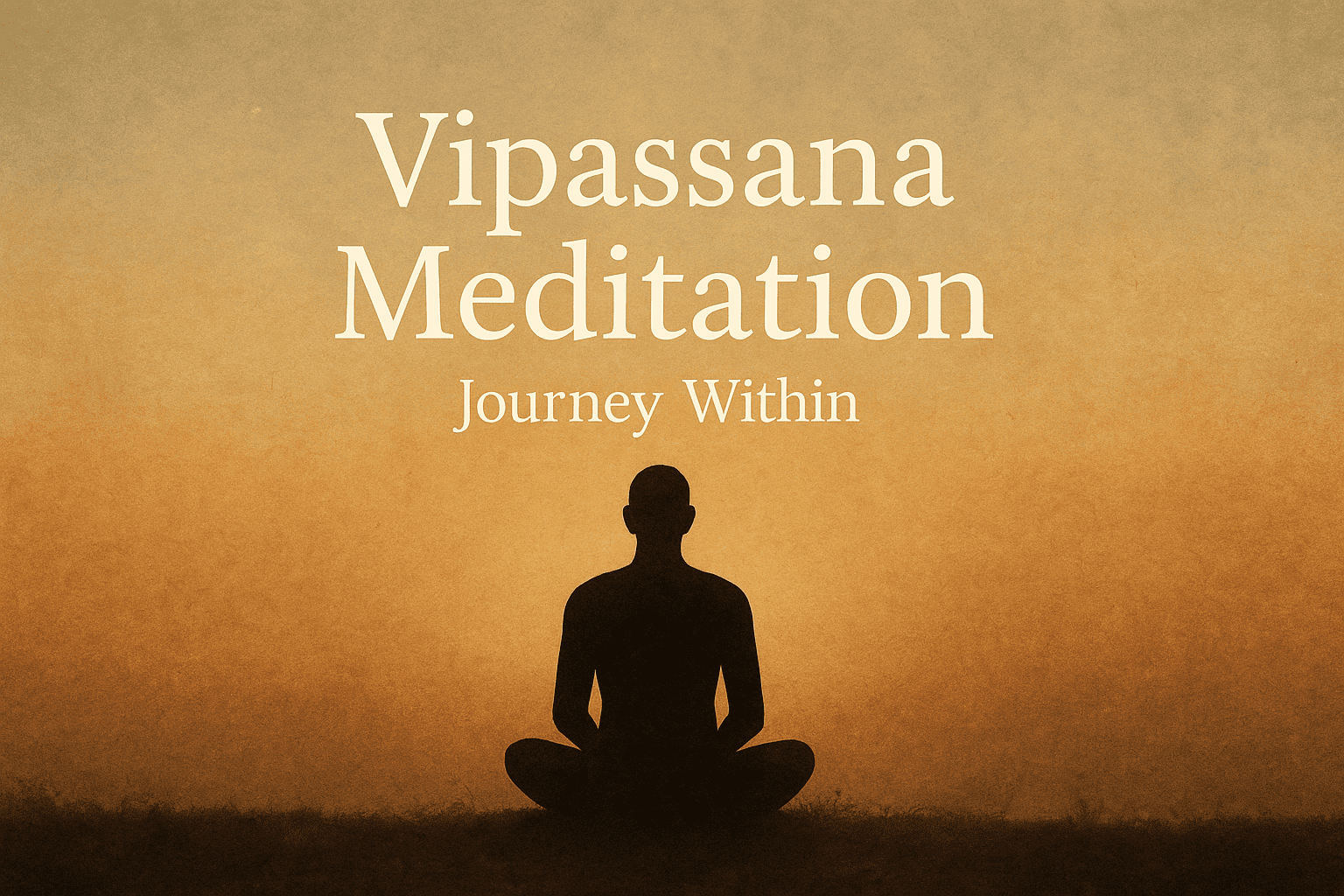MEDITATION
Vipassana Meditation: The Ancient Art of Seeing Things as They Really Are"

In our fast-paced modern lives, the mind is constantly racing—chasing the future, clinging to the past, and rarely resting in the present. Amid this chaos, many seek peace through yoga, mindfulness, and various wellness practices. But one of the most powerful and time-tested techniques to achieve deep inner peace is Vipassana meditation, a method that dates back over 2,500 years to the time of the Buddha.
🌿 What is Vipassana?
Vipassana means “to see things as they really are.” It is a form of insight meditation that involves observing the body and mind without attachment or aversion. Unlike other meditations that use mantras, visualizations, or breath control, Vipassana is about pure observation—of bodily sensations, thoughts, and feelings—without reacting to them.
This simple but powerful technique was rediscovered and taught by Gautama the Buddha as a universal remedy for suffering. It transcends religion, race, or background, offering a practical path to freedom from inner turmoil.
🧘♀️ How is Vipassana Practiced?
The practice begins with Anapana meditation, where the meditator observes the natural breath—without changing it. This sharpens the mind and develops concentration. Once the mind is calm, the meditator begins Vipassana: scanning the body from head to toe and observing every sensation that arises—heat, cold, tingling, pain, or pressure.
The key principle is equanimity: learning to observe each sensation without craving (for pleasant ones) or aversion (toward unpleasant ones). Over time, one realizes that all sensations are impermanent, and that clinging to them causes suffering.
🕊️ The Philosophy Behind Vipassana
Vipassana is not just a meditation technique—it's a complete path to liberation. According to Buddhist teachings, all human misery stems from desire and ignorance. When we crave pleasure or resist pain, we create suffering.
Vipassana helps dismantle these habits by making us aware of the constant arising and passing away of sensations in the body. With this awareness, we begin to let go of attachments and live with greater peace and clarity.
📿 The 10-Day Vipassana Retreat Experience
To learn Vipassana deeply, one must attend a 10-day residential retreat, as taught by S.N. Goenka in the tradition of Sayagyi U Ba Khin. These retreats are offered at centers worldwide and are completely free of charge.
Here’s what a typical 10-day retreat looks like:
- 🕓 Wake-up at 4:00 AM
- 🧘♂️ 10 hours of meditation per day
- ❌ No talking, reading, writing, or devices
- 🍛 Simple vegetarian meals
- 📵 Noble Silence: no communication with other participants
- 👂 Daily discourses to understand the technique and philosophy
While it may sound intense, many participants report profound inner transformations—healing from trauma, breaking addictions, and finding peace that lasts beyond the course.
🌟 Benefits of Vipassana Meditation
Vipassana works not just at the conscious level but also at the subconscious, where our deepest reactions lie. With regular practice, it brings many lasting benefits:
🧠 Mental Clarity & Focus
By observing thoughts without reacting, the mind becomes sharper, more stable, and less distracted.
💓 Emotional Healing
Old patterns of anger, fear, and anxiety dissolve as you observe them without fueling them.
😌 Stress & Anxiety Relief
By accepting all sensations as they are, you stop resisting life—and with that, stress starts to vanish.
🕊️ Inner Peace
You begin to live with more balance, acceptance, and kindness towards yourself and others.
⚖️ Challenges of Vipassana
While powerful, Vipassana is not easy. Sitting for 10 hours a day, in silence, facing your thoughts and pain can be incredibly difficult. Many people cry, feel restless, or even want to leave during the retreat. But these struggles are part of the cleansing process.
To gain real benefit, one must stay committed, disciplined, and open-hearted.
🙏 Is Vipassana for Everyone?
Yes—regardless of your religion, background, or beliefs, Vipassana is open to all. It’s not about worship or rituals, but about observing the reality of your own body and mind. It’s suitable for:
- Students dealing with stress
- Adults seeking emotional healing
- Elders wanting spiritual growth
- Anyone looking for a deeper understanding of themselves
📌 Final Thoughts
In a world where quick fixes and superficial solutions are everywhere, Vipassana is a rare gem—a path that invites you to look within, face your truth, and awaken true freedom. It demands discipline, effort, and courage, but the rewards are lasting and life-changing.
As Goenka Ji says,
“You cannot escape suffering by running away from it. You must face it, observe it, and understand it. That is the way to be free.”
So if you're ready to dive deeper into your mind and transform your life from the inside out, Vipassana is calling.
